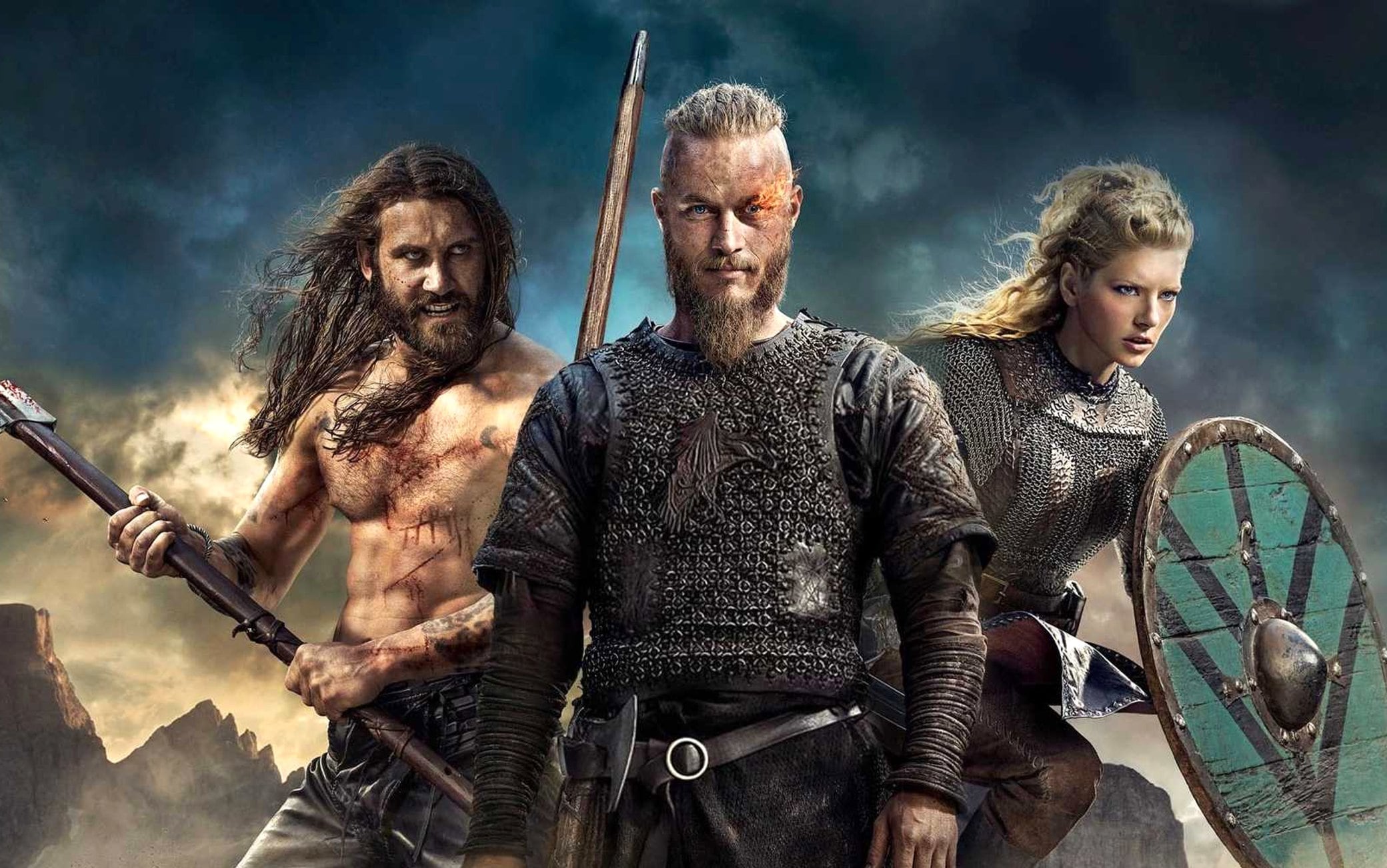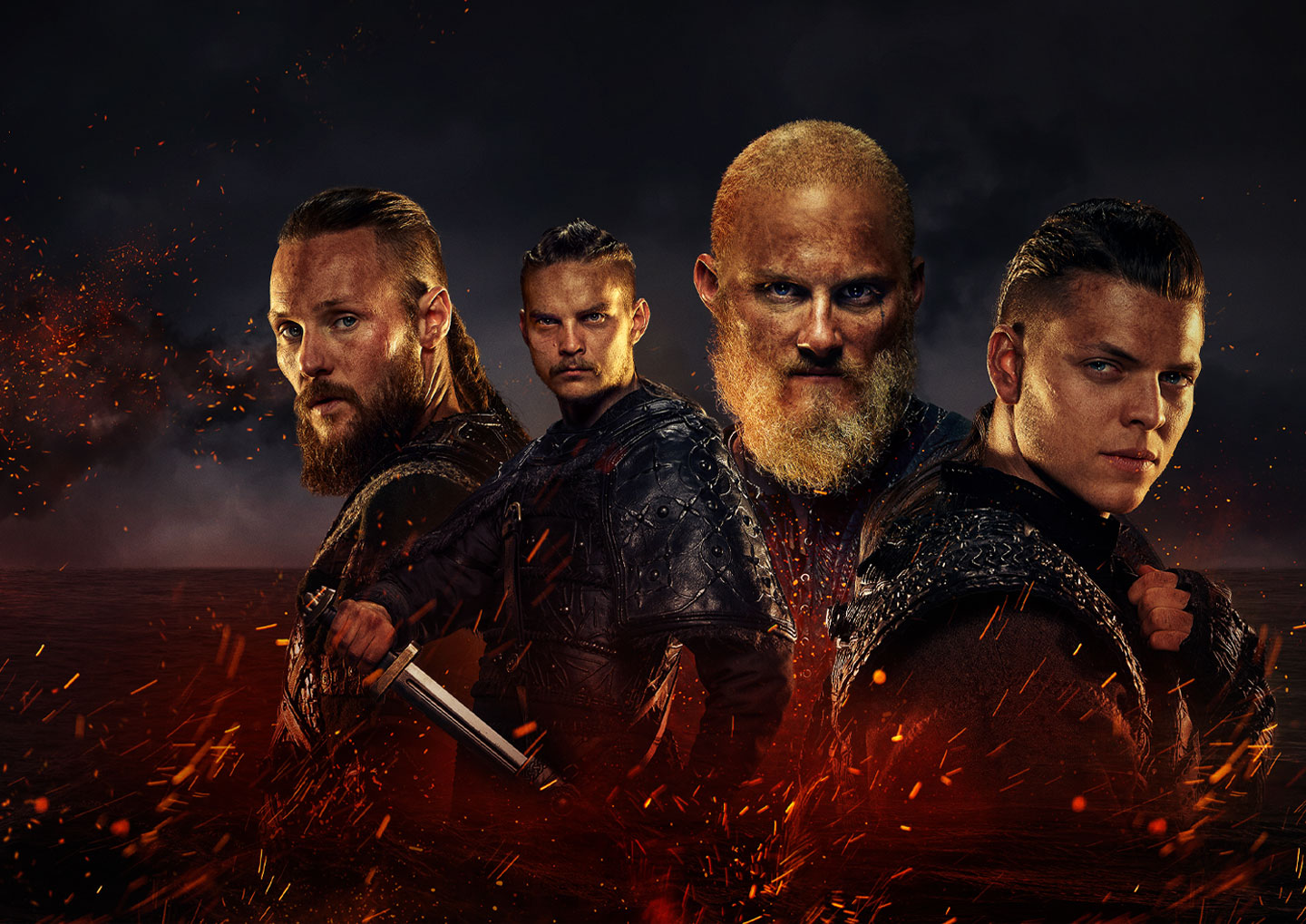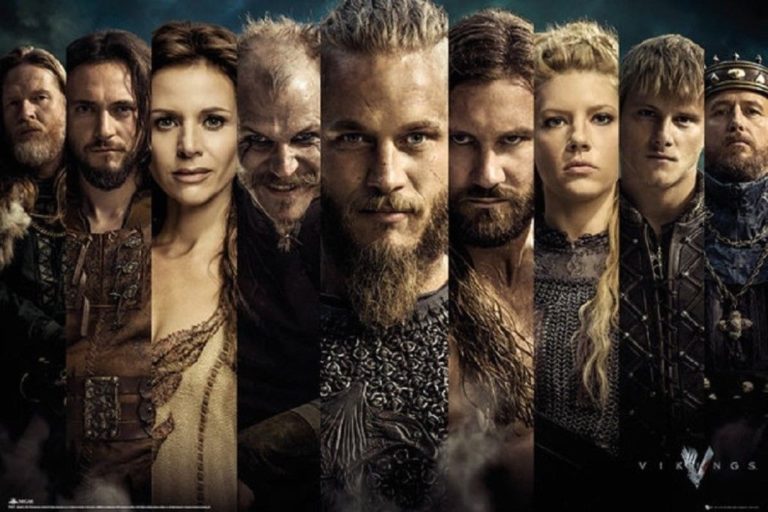Vikings Cast: Who Played Who & Where Are They Now?
Could a single television show truly encapsulate the breadth and depth of an entire historical era? For those captivated by the saga of the Vikings, the answer, arguably, is a resounding yes. The cast of the Vikings series, a collective of actors and artisans, brought to life the raw power, complex societies, and enduring legends of a Norse world that continues to fascinate and inspire. Their performances, meticulously crafted and delivered with conviction, have etched themselves into the collective consciousness, sparking discussions, debates, and a renewed interest in the people who once sailed the seas and shaped the course of history.
From the rugged shores of Scandinavia to the bustling ports of England and beyond, the Vikings, a seafaring people from the late eighth to the eleventh centuries, carved a lasting legacy. The Vikings television series, created by Michael Hirst, offered viewers a window into this world, showcasing the raids, explorations, and cultural exchanges that defined the Viking Age. But without the ensemble cast, the stories and the characters wouldn't have come alive as vividly as they did. The actors, many of whom possessed the rare talent of conveying emotion with subtle shifts in expression and tone, became the faces of a forgotten era, breathing life into the legends.
| Actor/Character | Birth Date | Birth Place | Noted For | Significant Roles (Beyond Vikings) | Years Active |
|---|---|---|---|---|---|
| Travis Fimmel (Ragnar Lothbrok) | July 15, 1979 | Echuca, Victoria, Australia | Portraying the legendary Viking hero Ragnar Lothbrok. | Warcraft (2016), Raised by Wolves (2020-2022) | 2002-Present |
| Katheryn Winnick (Lagertha) | December 17, 1977 | Toronto, Ontario, Canada | Playing the shieldmaiden Lagertha, a fierce warrior and Ragnar's first wife. | Bones (TV series, recurring role), Polar (2019), Wu Assassins (2019) | 2001-Present |
| Gustaf Skarsgrd (Floki) | November 12, 1980 | Stockholm, Sweden | Bringing the enigmatic and eccentric boatbuilder, Floki, to life. | Kon-Tiki (2012), Westworld (TV series), Oppenheimer (2023) | 1989-Present |
| Alexander Ludwig (Bjorn Ironside) | May 7, 1992 | Vancouver, British Columbia, Canada | Portraying Ragnar's eldest son, Bjorn Ironside, a formidable warrior and leader. | The Hunger Games (2012), Bad Boys for Life (2020), Heels (TV series) | 2000-Present |
| Clive Standen (Rollo) | July 22, 1981 | Holywood, County Down, Northern Ireland | Depicting Rollo, Ragnar's ambitious and complex brother. | Camelot (TV series), Taken (TV series) | 2004-Present |
| Jessalyn Gilsig (Siggy) | November 30, 1971 | Montreal, Quebec, Canada | Playing Siggy, wife of Earl Haraldson. | Nip/Tuck (TV series), Glee (TV series) | 1989-Present |
| Alyssa Sutherland (Aslaug) | September 23, 1982 | Brisbane, Queensland, Australia | Aslaug, Ragnar's second wife. | The Devil Wears Prada (2006), The Mist (TV series) | 1998-Present |
| George Blagden (Athelstan) | December 28, 1989 | London, England | Athelstan, the Anglo-Saxon monk. | Les Misrables (2012), Versailles (TV series) | 2009-Present |
| Peter Franzn (King Harald Finehair) | February 14, 1967 | Keminmaa, Finland | Playing King Harald Finehair, a Viking king. | The Gunman (2015), The Last Kingdom (TV series) | 1991-Present |
| Marco Ils (Hvitserk) | September 11, 1994 | Copenhagen, Denmark | Hvitserk, Ragnar's son. | The Shamer's Daughter (2015), Danish and Wild (TV series) | 2009-Present |
| Jordan Patrick Smith (Ubbe) | October 26, 1989 | Dundee, Scotland | Ubbe, Ragnar's son. | Neighbours (TV series), Hooligan (2019) | 2010-Present |
Reference: IMDb
The casting of Vikings was a carefully considered process, and the choices made by the production team played a critical role in the show's success. The actors, many of whom were relative unknowns before the series premiered, became synonymous with the characters they portrayed. Their performances were characterized by a commitment to authenticity, from the accents they adopted to the physical demands of the role. Each actor brought a unique perspective to the series, portraying the complex motivations, ambitions, and vulnerabilities of the Vikings.
Travis Fimmel, as Ragnar Lothbrok, anchored the series with his compelling performance. Fimmel's portrayal of Ragnar, a farmer who rises to become a legendary warrior and king, captured the character's ambition, cunning, and his evolving philosophical nature. His ability to convey both strength and vulnerability made Ragnar a complex and compelling figure, drawing viewers in and keeping them invested in his triumphs and failures. The characters struggles with faith, power, and family resonated deeply with audiences, and Fimmel's performance became a benchmark for the shows dramatic core.
Katheryn Winnick's portrayal of Lagertha was equally impactful. Winnicks strong presence and skilled performance made Lagertha more than just a fierce warrior; she was also a loving mother and a shrewd strategist. Lagertha's independence and her ability to navigate the often brutal world of Viking society resonated with viewers, and her character became a symbol of strength and resilience. Winnick's performance helped to reshape the image of the Viking woman, portraying a figure who was as capable and courageous as her male counterparts.
Gustaf Skarsgrd's performance as Floki brought a distinctive edge to the series. Floki, a shipbuilder and Ragnar's closest friend, was a man of contradictions, a skilled craftsman and a devout, often eccentric, follower of the Norse gods. Skarsgrd's portrayal captured Floki's eccentricities while also highlighting his unwavering loyalty and deep-seated paranoia, giving the character a unique place in the narrative of the show.
Alexander Ludwig, as Bjorn Ironside, provided the series with another layer of complex character development. His Bjorn was a brave warrior, determined to make his own way in the world, seeking to prove his worth. Ludwig's portrayal of Bjorn's growth from a young man into a seasoned leader, navigating the challenges of Viking life, highlighted the younger generation's role in the historical narrative.
Clive Standen's portrayal of Rollo added significant tension to the series. Rollo, Ragnar's brother, was ambitious, impulsive, and often conflicted, and Standen brought these contradictions to life. His performance underscored the complexities of loyalty, betrayal, and the personal cost of power. Rollos evolution throughout the series provided a stark reflection on the Vikings values and the ever-changing landscape of their ambitions.
The supporting cast members were equally important to the success of Vikings. Jessalyn Gilsigs portrayal of Siggy, the wife of Earl Haraldson, brought a sense of intrigue and survival to the series, while Alyssa Sutherland, as Aslaug, provided a look into the mystical elements of Viking culture. George Blagden, as Athelstan, the English monk captured a pivotal role in showcasing the cultural clash between the Vikings and the Christian world. Their performances, along with those of many others, contributed to the rich tapestry of characters and storylines that made Vikings so compelling. Peter Franzns depiction of King Harald Finehair added to the political struggles of the era.
The success of Vikings was not solely dependent on the actors performances. The series benefited from strong writing, beautiful cinematography, and a commitment to historical accuracy. The costumes, designed to reflect the clothing of the Viking Age, were carefully crafted, adding to the authenticity of the show. The set designs, which recreated Viking villages, longships, and battlefields, helped to transport viewers to another time and place. However, it was the actors who truly brought the world of Vikings to life, allowing viewers to connect with the characters on a personal level.
Beyond the individual performances, the cast of Vikings fostered a sense of camaraderie and collaboration. The actors, many of whom spent years working together, developed a strong bond, which was evident in their on-screen interactions. This sense of unity and shared commitment helped to elevate the quality of the show, allowing the cast to push each other and deliver their best performances. This collective energy ultimately translated to the screen, where it helped to create a world that felt authentic and immersive.
The legacy of Vikings extends beyond its success as a television show. It has sparked a renewed interest in Viking history and culture, prompting audiences to explore the stories of the people who lived during this fascinating era. The shows popularity has also led to a surge in Viking-themed merchandise, from clothing and jewelry to books and documentaries. The series has also inspired other works of art, further cementing its place in popular culture.
The cast of Vikings played a crucial role in the show's success. Their compelling performances, their dedication to historical accuracy, and their ability to connect with audiences on a personal level have ensured that Vikings remains a memorable and influential television series. The actors brought to life the raw power, complex societies, and enduring legends of the Vikings. The cast of Vikings has become a part of the history that they portrayed, their performances remaining a testament to the power of storytelling and the enduring appeal of the Viking Age.
The Vikings series, and the cast who brought it to life, has left a lasting impact. The performances, the dedication to detail, and the compelling storytelling have given us a new way to understand and appreciate the Viking Age. The cast of Vikings made an indelible mark on television history, and their work has earned them a place among the great acting ensembles of our time.



